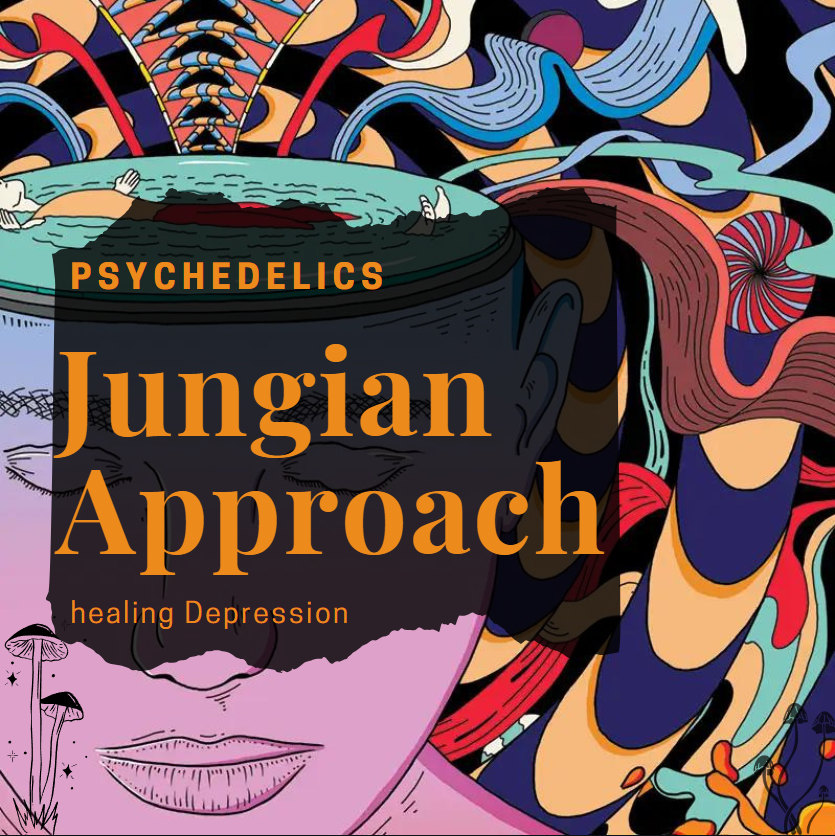
In the realm of psychedelic psychotherapy, one approach stands out for its depth and transformative potential: the Jungian approach. Rooted in the teachings of Swiss psychiatrist Carl Jung, this approach delves into the depths of the psyche, unlocking hidden realms of the unconscious to facilitate profound healing and self-discovery.
At the core of the Jungian approach is the belief that the unconscious mind holds the key to understanding our thoughts, emotions, and behaviors. Through the use of psychedelics, individuals can access the depths of their unconscious, encountering buried memories, suppressed emotions, and symbolic imagery that offer insights into their inner world.
So, how does the Jungian approach aid in this journey of self-discovery and healing?
Integration of the Shadow: Central to Jungian theory is the idea of the shadow—the dark, repressed aspects of the psyche that are often buried deep within. In psychedelic therapy, individuals confront these shadow elements, bringing them to light and integrating them into their conscious awareness. By facing and accepting these aspects of themselves, individuals can experience profound emotional release and inner transformation.
Jungian therapy emphasizes the importance of integrating all aspects of the psyche—both light and shadow. In psychedelic sessions, individuals confront their darkest fears and deepest traumas, working towards a state of inner wholeness and integration. By embracing the totality of their being, individuals can experience profound healing and personal growth.
Symbolic Interpretation: The unconscious mind communicates symbolically and metaphorically, frequently through dreams, fantasies, and psychedelic encounters. As a Jungian therapist, I possess the expertise to decipher these symbols, aiding individuals in unraveling the profound significance hidden within their visions and encounters. Through the interpretation of the unconscious’s symbolic language, individuals can attain invaluable insights into their psyche and navigate their journey toward healing.
Archetypal Exploration: Jungian psychology recognizes the presence of universal symbols and motifs known as archetypes. These archetypes—such as the hero, the shadow, and the wise old man—reside within the unconscious collective and are often encountered in psychedelic experiences. By engaging with these archetypal figures, individuals can gain a deeper understanding of themselves and their place in the world.
Transpersonal Connection: Beyond the personal unconscious lies the realm of the transpersonal—the collective unconscious shared by all humanity. Psychedelic experiences can facilitate transcendent states of consciousness, leading to profound spiritual insights and mystical experiences. The Jungian approach honors these transpersonal experiences, recognizing them as integral to the individual’s journey of self-discovery and spiritual awakening.
In essence, the Jungian approach in psychedelic psychotherapy offers a profound pathway to emotional healing, self-discovery, and spiritual transformation. By delving into the depths of the unconscious mind, individuals can confront their inner demons, unlock hidden potentials, and embark on a journey towards greater wholeness and authenticity. Under the skilled guidance of trained therapists, the Jungian approach opens doors to the soul, illuminating the path towards profound healing and personal evolution.
In conclusion, the Jungian approach in psychedelic psychotherapy presents a robust method for delving into the depths of the unconscious psyche. Collaborating with adept therapists versed in Jungian psychology enables individuals to unearth concealed truths, merge fragmented facets of the self, and commence a voyage towards enhanced completeness and self-awareness. Through the transformative potential of psychedelics, individuals can open the gateway to their unconscious realm, revealing concealed treasures and facilitating profound healing from conditions such as depression, anxiety, PTSD, and other mental afflictions.
